Your cart is currently empty!
Blog
-

What's the Importance of Omega-3 Fatty Acids for Heart Health?
A growing number of experts agree that omega-3 fatty acids affect almost every body system.
We all know that our heart is a muscle and needs exercise for optimal health. And we know the importance of a healthy diet for heart health. But do you know how essential omega-3 fatty acids are for your heart?
The National Institutes of Health (NIH) says that omega-3 fatty acids affect almost every body system and numerous health conditions. Some of the interest in omega-3s is traced back to observations that Greenland Inuit people (who have a high diet in fish oils) have lower serum cholesterol, triglycerides and low-density lipoprotein (LDL) than might be expected.
How to get your omega-3s
The Harvard Medical School Guide, Understanding Inflammation, suggests a few specific foods that provide healthy doses of omega-3 fatty acids, which have long been shown to reduce inflammation:
- Olive oil
- Flaxseed oil
- Fatty fish (salmon, sardines and mackerel)
NIH reports that evidence has been mounting over recent years for the positive effects of omega-3s for heart health, as well as other disease processes and risk factors. Here are a few of the areas positively affected by omega-3 intake:
- Cardiovascular: Perhaps the most well-known effects of omega-3s are on the cardiovascular system (CS). And dietary fish consumption and fish oil supplementation have been studied on coronary artery disease (CAD), arrhythmias, heart failure, and hypertension.
- Ophthalmological: Dietary intake of omega 3s may benefit age-related macular degeneration (AMD) and dry eye syndrome. In fact, several studies have shown a decreased risk of AMD when people ate fish two or more times per week. And people with dry eye syndrome (DES) are linked to a decreased dietary intake of omega-3s or a high ratio of dietary omega-6.
And people with dry eye syndrome (DES) are linked to a decreased dietary intake of omega-3s or a high ratio of dietary omega-6.
- Other Body Systems: Additionally, there are even more health conditions and body systems affected by dietary intake of omega-3 fatty acids to include neurological and psychological, dermatological (skin conditions), and arthritis and joint health.
Add omega-3s to your diet today!
If you would like to add an extra measure to ensure you get the omega-3 fatty acids your body needs, please consider our [TVBLOGCOPY]Omega3 Prime[/TVBLOGCOPY][MWSBLOGCOPY]Omega3 Prime[/MWSBLOGCOPY] supplement. You can also stack up on VitaPoints!
You can read the full article from the National Institutes of Health by clicking here.
-

What's the Importance of Omega-3 Fatty Acids for Brain Health?
A growing number of experts agree that omega-3 fatty acids affect almost every body system.
Research has documented the connection between omega-3s in several neurological and psychological conditions. A recent study found a correlation between omega-3 fatty acids that are related to an increased risk in Alzheimer’s.
How to get your omega-3s
The Harvard Medical School Guide, Understanding Inflammation, suggests a few specific foods that provide healthy doses of omega-3 fatty acids, which have long been shown to reduce inflammation:
- Olive oil
- Flaxseed oil
- Fatty fish (salmon, sardines and mackerel)
The National Institutes of Health says that omega-3 fatty acids affect almost every body system and numerous health conditions. Some of the interest in omega-3s is traced back to observations that Greenland Inuit people (who have a high diet in fish oils) have lower serum cholesterol, triglycerides and low-density lipoprotein (LDL) than might be expected.
Evidence has been mounting over recent years for the positive effects on various disease processes and risk factors. Let’s look at a few of the areas positively affected by omega-3 intake, including brain health:
- Neurological and psychological conditions: The relationship between omega-3 intake and these conditions is grounded in known aspects of brain and neuron physiology. Adequate omega-3 intake seems to help prevent cognitive decline in people’s middle and later years.
Omega-3 fatty acids have also been studied in the context of attention deficit and hyperactivity disorder (ADHD), autism and depression. They have found that some children respond to omega-3 supplementation.
- Cardiovascular: Perhaps the most well-known effects of omega-3s are on the cardiovascular system (CS). And dietary fish consumption and fish oil supplementation have been studied on coronary artery disease (CAD), arrhythmias, heart failure, and hypertension.
- Ophthalmological: Dietary intake of omega 3s may benefit age-related macular degeneration (AMD) and dry eye syndrome. In fact, several studies have shown a decreased risk of AMD when people ate fish two or more times per week.
And people with dry eye syndrome (DES) are linked to a decreased dietary intake of omega-3s or a high ratio of dietary omega-6.
- Other Body Systems: Additionally, there are even more health conditions and body systems affected by dietary intake of omega-3 fatty acids to include dermatological (skin conditions), and arthritis and joint health.
Add omega-3s to your diet today!
If you would like to add an extra measure to ensure you get the omega-3 fatty acids your body needs, please consider our [TVBLOGCOPY]Omega3 Prime[/TVBLOGCOPY][MWSBLOGCOPY]Omega3 Prime[/MWSBLOGCOPY] supplement. You can also stack up on VitaPoints!
Click here to read the full article by the National Institutes of Health.
-
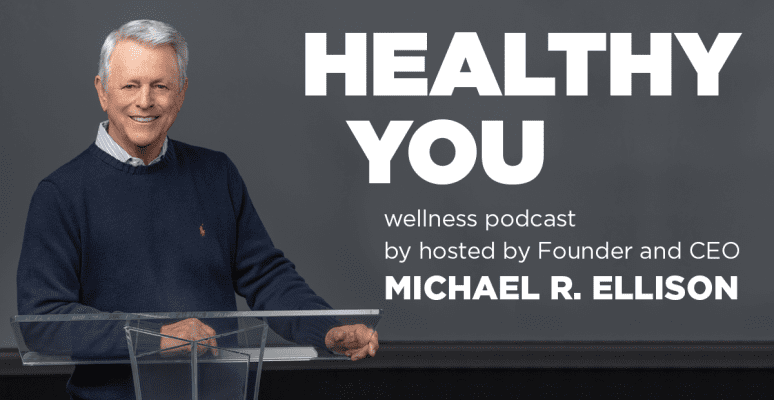
Episode 25: Featuring Jarir Nakouzi, M.D.
Thanks to innovative medical technologies, people are living longer lives. Find out what you can do to ensure you continue to live a vibrant, healthy life.
Everyone knows that our body uses glucose (sugar) for energy. And you’ve probably heard about oxidation and free radicals. But what does it all mean?
In this interview, Dr. Nakouzi breaks it down, so you can understand how the bad guys (free radicals) are formed, during the energy-conversion process – and also what happens with oxidation. And what you can do to minimize the damage.
You’ll find the discussion fascinating from this medical doctor, specializing in oncology (cancer patients). He also helps patients with various conditions, like neurodegenerative disorders and other chronic degenerative diseases.
About Jarir Nakouzi, M.D.
Jarir Nakouzi, M.D. completed his residency in the Yale University Program of Internal Medicine and has practiced biological medicine for over thirty years. As an expert in oncology, he specializes in integrative approaches in treating chronic degenerative conditions. His private practice in Connecticut takes an integrative approach to chronic disease.
-

From Ancient to Modern Times, THIS is How Healing Really Works!
There is a fundamental principle so powerful that it forms the basis upon which medical science measures any advancement in drugs or treatments.
It is so powerful that it’s recognized by scientists to measure true results of a drug or treatment in any clinical study. It has been recognized, researched and studied by scientists for decades — but practiced worldwide by mankind for thousands of years.
If you want healing and health to occur, this is the most powerful source of healing you can tap into. And everyone has the innate ability to tap into this power. You just haven’t learned about it.
In medical research, there are two factors to be considered when testing a new drug or treatment. It’s the drug’s effects measured against the amazing… placebo!
We’ve all heard about the placebo’s use, as a standard in modern science. You know, it’s when researchers conduct a clinical trial, giving half the participants the drug (or treatment) they’re testing – and give the other half a sugar pill or some other inactive substance.
Today, modern medicine uses a placebo in research — not to optimize healing, but as a means to separate the effects of belief from those of the drug or technique itself.

The Power of Belief
The power of belief is recognized as a constant, which will always produce an effect. Therefore, a placebo is always used in clinical trials to measure any improvements above and beyond the power of belief.
In fact, belief is recognized as having a greater healing effect than the results achieved from any drug or treatment.
In his book, How Healing Works, Dr. Wayne Jonas says, “Drawing on the most rigorous scientific evidence available, as well as wisdom from ancient healing traditions, I will show you:
That only 20% of healing comes from the treatment agent that the doctor applies to you.
And a full 80% of healing comes from constructing a meaningful treatment response, unique to you, which is internal and highly personal, using simple principles and components.
You can activate your own, inherent healing processes, and get your physician and others on board to help accelerate your healing journey.”
Wayne Jonas, MD, is a family medical doctor, trained research scientist and explorer of many medical systems. He served as director of the Office of Alternative Medicine at the National Institutes of Health (NIH), as research scientist at the World Health Organization (WHO), and at other renowned institutions.
The placebo’s power is not to minimize the importance of any drug, treatment, supplement or herb to help you live healthy. But the placebo effect demonstrates a hidden (and mostly ignored) power available to you.
The placebo effect is when test participants, receiving the placebo, experience a benefit… even though there was nothing beneficial in their dose. No thing, anyway. So how does this happen?
Because the placebo participants ‘believed’ they were getting the drug.
To fully comprehend the power of our beliefs can get a little esoteric. But even hard, cold science takes the power of belief into account, in order to effectively measure against any improvement when testing a drug or treatment protocol.

Do Your Beliefs Create Your Reality?
Believing is usually associated with spiritual growth and our relationship with God. Jesus realized this power and said in Mark 9:23, “All things are possible when you believe!”
There is no illness or disease that cannot be overcome with the power of belief. This is not simply a positive mental attitude or mind over matter… it is tapping into our God-given power.
Paul wrote in Romans 12:3, “To every person, God has given a measure of faith!”
My wife, Susan traveled her wellness journey, by faith. When she was diagnosed with breast cancer 16 years ago, she went from the scream of disbelief when her breast cancer was confirmed, to a penetrating question:
“What do I believe about my life, my purpose and my right to accept God’s gift of healing?”
Her healing journey has been amazing. She drew even closer to her faith, with an unwavering commitment to the plan of medical exams, diet, exercise – and positive thoughts, meditation and prayer. She knew that if she did her part… God would take care of the rest!
Perhaps most importantly, she proved that laughter is, indeed, the BEST medicine.
Faith or belief is not miraculous. Even though medical science calls it a miracle when a disease (or positive outcome) is healed, without a drug… we know it is the power of belief.
Faith comes from an inner surrender – gracefully accepting God’s gifts to us, as we honor our bodies as a holy temple where Spirit dwells.
In Timeless Healing: The Power and Biology of Belief, Herbert Benson, M.D., Harvard Medical School, writes that one of the most important things you can do each day is to invest 10 – 20 minutes in meditation, focusing on a time of remembered wellness.
A time when a simple prayer can be repeatedly prayed to align with God’s vision for us. Dr. Benson writes, “Although I wanted my patients to enjoy the technique, so they would adhere to its practice, I also wanted them to reap the rewards of remembered wellness, by believing in the technique.
It wasn’t just belief in themselves or belief in the technique that they applied to mental focusing, it was often religious faith. That is why I came to call the combination of these physiologic powers the faith factor.”
There is much ‘dis-ease’ in the world… bodies that are not at ease, at peace… and not in alignment with their innate physician. And the World Health Organization says chronic inflammatory-related disease is the greatest threat to human health. Something is VERY wrong!
Yet, there is a magnificent power available to us to heal ourselves. Claim your birthright to live well and prosper.
You can live with greater wellness. Believe you can, and you will!
Yours in wellness,
Michael R. Ellison
-

Happy New Year! And welcome to the NEW you in 2020!
The New Year always brings out the desire to change things with new year resolutions. But the facts are that by February, 70% of the resolutions are forgotten.
The most powerful thing you can do to bring change in your life (health, well-being, financial or relationships) is not a new year’s resolution — but to seek out the powerful purpose of your life.
Be the best YOU that you can be, including your desires, gifts, talents and your physical body. Make the plans to live and support your future in being the best original YOU! Think it, see it, feel it, walk it!
One of my favorite scriptures is Proverbs 23:7 NAS “for as he thinks within himself, so is he.” The power of thought is so underestimated by most of us. It is the communication system to every cell, system and organ within you. If you desire to run, first you think, “I am going to run.” Your body does not engage in any physical activity without thought — whether conscious or unconscious.
A typical new year’s resolution is to try and change a result of the past, like losing weight, because of past over-eating and lack of exercise. But it seldom works out because when we focus on a negative (something we don’t want), we get MORE of the thing we don’t want.
To change, you must think ‘NEW’ thoughts.

Think new thoughts, see the new you, feel how it would feel with the new you (emotionally connect). Talk like the new you. Walk like the new you. Then you will BECOME the New You!
Your intelligent cells, systems and organs will begin to align to your NEW thoughts and feelings. As you think, so are you. Where you focus your attention, your energy flows. And your beliefs, your emotions and outcomes will begin to be the new you. The best YOU that you can be… how exciting is that?
I am sure you know this, but the cells of your body respond to the chemicals produced by your emotions. So, negative emotions impact your cells negatively. Positive emotions, quite naturally, have a very positive affect on your cells. Aahh, the intelligence that is your body!
And every thought and memory of your past (if you keep it alive in the present) creates a corresponding emotional and chemical response. That is why most people tend to live their past over and over. What is your chemical dependency? The emotions from the past thoughts and memories of life experiences, or the future you desire so vividly that you can feel it emotionally? Make it vivid and consistently, until it becomes second nature.
I can relate to this truth from my past years when adrenalin was my chemical of choice and dependency. Why? Because I “thought” sleep was a waste of time. I did not understand the restorative and regenerative aspects of sleep, therefore my body required a constant adrenalin rush to keep it going 20 hours a day.
Back then, my thoughts were seldom of peacefulness, gratitude, patience, and acceptance. Rather, they were survival-oriented — pushing myself to the limit. My thoughts produced the chemical my cells depended on for energy. When feeling a lack of energy, I charged even harder. It was a vicious circle. I was anchored in my past, reliving it in my present moment-by-moment.
That life was exciting, as I constantly pushed myself… until I crashed! I’ll never forget the day my doctor told me, “Michael, you must change the way you “think” about health and life, or you will eventually kill yourself.” Yes, they said ‘think.’ So when I went on my wellness journey to find the essentials of wellness, I changed my thoughts dramatically. And, not surprisingly, my life changed.
You Were Not Created for Survival. You Were Created to Thrive!

Consider this powerful scripture in Jeremiah 29:11. “I know the plans I have for you (future). Plans to prosper you and not to harm you. Plans to give you hope and a future!”
The Almighty has plans for your prosperity and joy — not for your mere survival. Surviving is driven by fear, which triggers the stress hormone (fight or flight). But there isn’t a Saber-toothed tiger chasing you, is there? God has plans to prosper you physically, emotionally and spiritually. Plans to help you live your life purpose.
My new thoughts on my wellness journey brought gratitude, joy and love. Consequently, different chemicals began to run through my body. I began to think how it would feel to be grateful, to feel love for God, family and others. It was so life-changing for me that I was compelled to build a company to share the Ten Essentials of Wellness that I discovered. I see them as wellness essentials that will support your life’s journey… with purpose and meaning.
Now, I know we all have some baggage from bad experiences. It’s part of being human. But we have the power to think different thoughts and produce different emotions. And our amazing bodies will respond.
To help release us from our past, we need to change the way we think of the past bad experiences. Forgiveness is one key. Forgive others and definitely forgive yourself, which is even harder. Another powerful release is to learn from the past and then release it. Replace it with the glorious future that God sees for you. And it does not matter what age you are. If you’re still here — you have a purpose to fulfill.
The way to get beyond your current life, and into the life flow of your future, is to get beyond yourself as you are. Think of how life could be flowing in His plan of prospering you. What does that feel like? Emotionally, what does that FEEL like to you? As you focus on these new feelings, you’re sending new messages to every cell in your body. And, in turn, every cell will send back messages to think more thoughts that feel like this. Pretty soon, you’ll be in alignment with God’s plan for you.
As a person thinks in their heart, soul and mind, so are they. There is only one YOU. Find your purpose. Live it. And BE your best self. It’s your birthright.
Wishing you a happy & healthy New Year!
-

Episode 24: Make 2020 Your BEST Year Yet!
Join Michael R. Ellison, Founder of TriVita, as he explores deeper insights that give a whole new meaning to “New Year’s Resolutions.”
What if you really could reimagine your future – and bring it into your current reality — by creating thoughts and feelings with purpose and intention? Tune-in, as Michael shares some insights from neuroscience and epigenetics on how you can reprogram your brain, emotions and body to create a harmonious, joyful life. Yes, you’re that powerful!
About Michael R. Ellison, TriVita Founder & CEO

Michael Ellison has a mission to help people everywhere experience whole-person wellness. For him, this mission became crystal clear when he suffered a health crisis at the age of 50.
As Michael recovered and found his way back to health, he became determined to share his message of wellness with others. This led to his founding of TriVita in 1999, where he now leads the company’s ongoing pursuit of bringing health and wellness to the world.
Helping people experience greater wellness and mitigate the unwanted, unnecessary lifestyle-related diseases continue to be Michael’s purpose… and he brings this passion to the table in the day-to-day operations at TriVita.
Michael Ellison is also the author of 10 Habits of Wellness and founder of House of Giving — a nonprofit organization focused on serving those less fortunate, especially children in poverty-stricken areas of the world by providing opportunities for a higher quality of life and wellness.
-

Episode 23: Featuring Autumn Ellison
Listen to some amazing words of wisdom from the five-year-old granddaughter of Michael R. Ellison.

In every TriVita catalog you will always see the 10 Essentials for Health and Wellness beside Michael’s letter on page two. In this episode of Healthy You, Michael R. Ellison focuses on the “gratitude” essential and shares seven scientifically validated benefits you can count on by expressing your gratitude. This special podcast will also touch your heart as he interviews his five-year-old granddaughter sharing her insights on love, prayer and living with gratitude.
About Autumn Ellison
Autumn Ellison loves to be on the move. She skipped crawling and started running right out the gate. She enjoys cooking, baking, painting, and playing with her little sister. Her family is important to her and prays daily and every time it’s her turn at dinner and before bed. She believes the world deserves to live healthy and happy and everyone deserves to be loved. Her favorite TriVita product is Nopalea.
-
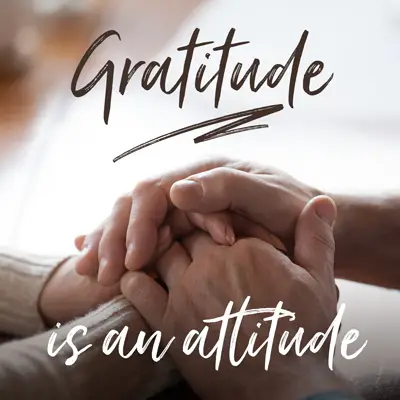
Gratitude Is An Attitude
When I began reflecting on my December blog being the last one of 2019, it became obvious that gratitude was the most appropriate and powerful subject I could write about. There are so many spontaneous gifts each of us experiences in life that creates the opportunity for gratitude.
Gratitude is an attitude. It is the get-rich-quick scheme in life. Emotionally rich with well-being and happiness as its reward. Another way of looking at gratitude is it’s the master key to abundance in life. It unlocks so many almost magical experiences. In fact, I read a testimonial where someone said, “Life is so magical that something so easy as practicing gratitude has such a powerful impact.” It is free, easy and anyone can do it. And it’s literally life-changing.
A bestselling author said it this way. “Gratitude unlocks the fullness of life. It turns what we have into enough and more. It turns denial into acceptance, chaos to order, confusion to clarity. It can turn a meal into a feast, a house into a home, a stranger into a friend. Gratitude makes sense of our past, brings peace for today and creates a vision for tomorrow,” writes Melodie Beattie.

Gratitude brings more than just the feeling of well-being and happiness. It also has many health benefits including lowering blood pressure, aids digestion, helps one sleep better, and science has now validated it improves lipid ratios in blood.
In my book 10 Habits of Wellness, released earlier this year, a chapter is dedicated to the wonders of gratitude. Knowing the benefits of practicing gratitude, we all need the habit of gratitude to reap consistently. The Three Rs are the simplest way I have discovered to develop a habit. Know the reward, identify a daily routine in life to practice the routine of gratitude and then create reminders.
Sometimes busy schedules distract us into the urgent and away from the important. Sometimes events occur that emotionally bring other emotions like anger, anxiety or fear. So having the routine and reminders for the practice of gratitude are so important. When life is going well, it allows us to celebrate life! Enjoy the good times! But when life is not going well, is filled with trauma or adversity, the practice of gratitude allows us perspective and life in its entirety to grow stronger. Please remember the bad things in life do not define who we are.
I invite you to listen to my upcoming podcast, available on December 15th, on the seven proven benefits of practicing gratitude. I have a special moment with my five-year-old granddaughter, Autumn, that will bring a smile to your face and your heart as she prays for you.
As we close out this year I can truly say I am so grateful for our TriVita Members. They are top of the list, along with family and friends. I am grateful for your support of our wellness mission with each purchase you make and the many phone calls, letters and emails expressing your gratitude for TriVita. That is one of the blessings of the attitude of gratitude. It creates a feedback loop of care and love.
This Christmas holiday season is a very special time for learning to practice daily the attitude of gratitude. For those of us as Christians, it is the most important time to celebrate the birth of Jesus Christ and gratitude is the overwhelming feeling and thought in recognizing God’s gift to mankind worldwide. My Jewish friends celebrating Hanukah are also filling their lives with gratitude for the historical re-dedication of the Temple.
I leave this thought for you to ponder. Gratitude with all its many benefits is best experienced when we realize life’s gifts, forces and energy come from outside of ourselves. Recognize people, God, and life as the gifts and force of your life best lived with gratitude. The opposite of that is pride!
-

Episode 22: Featuring "Amazon John" Easterling Part 2
Amazon John is back to continue the discussion on digestive health and how it affects mental and physical well-being.
Your gut and brain are intimately connected, but many people overlook the importance of a healthy digestive system when dealing with mental and emotional dysregulation. In this episode of Healthy You, Amazon John shares his top tips for incorporating digestive enzymes and fiber into your diet for better digestion, improved immune response and increased energy and mental clarity. Join Michael R. Ellison and John Easterling to learn more about the importance of supporting optimal gut health.
Click below to listen to part 1 of this two-part podcast.
About “Amazon John” Easterling
John Easterling is an explorer, rainforest educator, conservationist and entrepreneur. John has always had a passion for discovering lost treasure, which led him to travel to South America. He fell ill on one trip and was cared for by the Shipibo tribe in the Amazon Rainforest. Since then, Amazon John has dedicated his life to the exploration, preservation of the Amazon Rainforest.
-

Episode 21: Featuring "Amazon John" Easterling
Amazon John delves into why gut health is so important, and how you can support better digestive function and well-being.
Digestive health isn’t just about waste elimination. A happy and healthy gut is fundamental to overall wellness. In this episode of Healthy You, Amazon John Easterling discusses the growing understanding of how gut health affects overall wellness and vitality. Join Michael R. Ellison and John Easterling to learn more about the importance of supporting optimal gut health.
Click below to listen to part 2 of this two-part podcast.
About “Amazon John” Easterling
John Easterling is an explorer, rainforest educator, conservationist and entrepreneur. John has always had a passion for discovering lost treasure, which led him to travel to South America. He fell ill on one trip and was cared for by the Shipibo tribe in the Amazon Rainforest. Since then, Amazon John has dedicated his life to the exploration, preservation of the Amazon Rainforest.
-
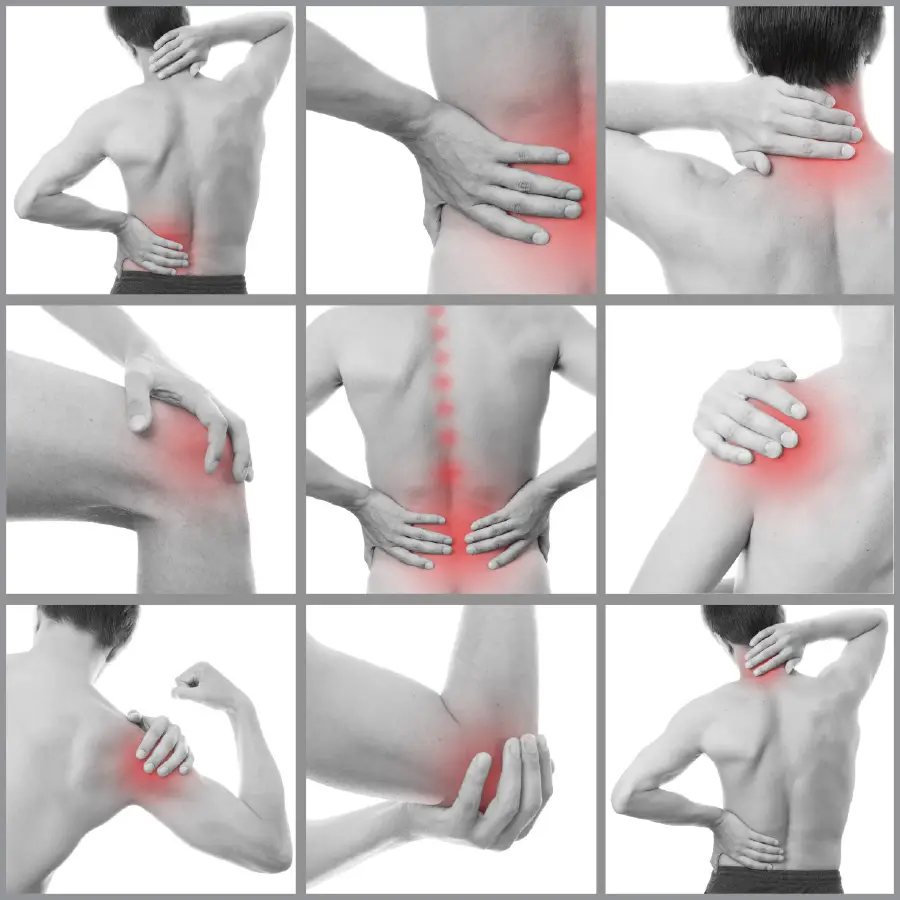
The Silent Killer
When asked by your doctor; how are you feeling? Most people respond; I feel fine. But are you really fine? Your actual health may not be as good as you think because what’s really going on inside just might tell another story.
Today, organizations like Harvard Medical School, Cleveland Clinic, National Institutes of Health and the World Health Organization all agree that chronic inflammation breeds a host of diseases and health conditions. National Institutes of Health states; chronic inflammation is not a specific disease but a mechanistic process. It is part of the body’s defense mechanism.
Inflammation represents an essential survival mechanism that helps fight off hostile and harmful microbes and pathogens and repairs damaged tissue. Yet there is another side of inflammation that can be harmful rather than helpful when it lingers and attacks healthy cells and tissue. Chronic inflammation we may not be able to feel or see is a dangerous silent killer.
“Most modern people are boiling pots of inflammation: hot, steaming, churning cauldrons of disordered, chaotic inflammatory responses, much of them due to food choices that perform poorly to human dietary needs.”
— William Davis M.D., Cardiologist and Author
In this special report, you’ll learn why the World Health Organization calls chronic inflammation “the greatest health threat to humanity.” Including information about what causes chronic inflammation and its role in your overall health. Plus, you’ll find the results of an exciting new clinical trial that may change the way you think about managing inflammation, a letter from TriVita’s founder, as well as a very special offer to help get you on the road to wellness. Continue on page 2.
-

Episode 20: Featuring Lisa Hill – Is Your Pillow Making You Sick?
Lisa Hill discusses sleep-disrupting toxins and how your bedding may be affecting your overall health.
Getting a good night’s sleep isn’t just about getting 7-8 hours of rest. In this episode of Healthy You, Lisa Hill discusses the hidden toxins and chemicals hiding in conventional bedding and household products. Join Michael R. Ellison and Lisa Hill to learn more about how you can reduce sleep-disrupting toxins in your bedroom for better sleep and greater well-being.
About Lisa Hill
Lisa Hill is a global health advocate and the Founder and CEO of Silverite Global. As a healthcare professional with over 20 years of experience, she knew that conventional pillows were made with toxic foam, allergy-inducing animal dander and don’t decompose naturally. Lisa formulated the Silverite pillow as a non-toxic, eco-friendly and customizable alternative.
Silverite Global
Silverite is changing the way people sleep! Each Silverite product is created using the finest natural fibers and fabrics for ultimate comfort and well-being. Silverite embraces the numerous health benefits of silver by infusing it into each product using groundbreaking technology.
-

House of Giving Helps Transform Another Community.
Kevin Fuller founded the non-profit, Christian humanitarian aid organization Les Pecheurs International with a vision to help those less fortunate. Les Pecheurs is a French term when translated into English means “The Fisherman”. A profound name Kevin came up with inspired from the Bible teaching.
Give a man a fish, and you feed him for a day. Teach a man to fish, and you feed him for a lifetime.
Today Les Pecheurs is focused on Andriampamaky, a village located on the isolated island of Madagascar where he is creating a big and audacious plan to educate the community on how they can prosper and escape the “Poverty Trap”.
Andriampamaky has roughly 3,500 people and is located approximately two hours north of Antanannaviro, the capital city of Madagascar. This rural region has a twenty-mile radius with surrounded by ten other villages of similar size. The unfortunate thing is that the people living in these villages have no money, medical care, reliable public transportation and almost zero support from the government. The indigenous people mostly rely on highly contaminated surface water and create very limited financial means derived from rice crops grown in the valleys of the undulating lands.
75% of the population survives on less than $1.90 USD per day.
Until recently, the population of these villages gave birth to the new-born without any decent medical care. Thanks to Les Pecheurs they now have a functional medical center providing a historical service of the first-born babies to be born under proper medical care. However, there was one major challenge they faced to make the center “fully-functional”; clean water.
Kevin Fuller travels to Scottsdale, AZ to meet with Michael R. Ellison
Being that the village only had access to surface water, Kevin knew he needed to find a way to access clean water from the ground but had no experience in clean water drilling. So, he deiced to turn to a friend, Michael R. Ellison that had many years of experience in clean water drilling projects in Africa.
Kevin decided to make the long trip out to Arizona to visit with Michael and learn more. As a result, today we’re proud to report that the village of Ardiampamaky and the medical center now have access to clean drinking water thanks to the successful drilling project. The free and clean water is now changing people’s lives and lifting the spirits of the entire community. They have moved from surviving to thriving!
“The new well is a miraculous supply of water. Kevin and I have discussed water filtering of captured surface water and various attempts to get water to this village. I told him, if he could ever drill and find water, House of Giving would sponsor the project. Never did we imagine we could get water for the new medical center and the entire village. It is an amazing value for each and every dollar funded,” Michael R. Ellison.
We couldn’t have done it without your help!
Knowing Kevin had secured the resources to drill the water wells Michael wanted to follow through on his commitment he made and asked the board of directors to help raise funds for the project. With full support, the board got on board and we were able to raise over $25,000 USD for the project. Without help from the Ellison Family and ITBOs donating to House of Giving this would not have been possible. We are truly grateful to all of those who have donated to help those less fortunate and to have your support. We pray and hope you will be reciprocated with many blessings!
Sincerely,
Your friends at the House of Giving
For I was hungry and you gave me something to eat, I was thirsty and you gave me something to drink, I was a stranger and you invited me in.
Mathew 25:35 NIV Edition -

Episode 19: Featuring Scott Conard, M.D.
There are no magic pills for wellness, but you can live a longer and more vital life by helping your body regulate inflammation through smart lifestyle choices.
Inflammation isn’t inherently bad, like anything else in our body it’s about balance.
On this episode of Healthy You, James and Betty Robison, Dr. Scott Conard and Michael R. Ellison discuss what inflammation is and how it affects your life and well-being. Join them to learn how you can make the right lifestyle choices to support healthy inflammation support.
About Scott Conard, M.D., DABFM, FAAFP
Scott Conard is the Chief Medical Officer of TriVita, Inc. and President of the TriVita Clinic of Integrative Medicine. He has more than 30 years of successful clinical practice, research and leadership experience.
About James and Betty Robison
James and Betty Robison are hosts of the Christian TV program Life Today. James was led into ministry in his late teens and founded LIFE Outreach International in 1963, which focuses on television and mission outreach. Together, they have impacted millions of lives worldwide through their programs and missions.
-

12 Simple Ways to Boost Your Mood
Occasionally feeling sad, cranky, upset and distraught is a fact of life. Maybe you’re tired, stressed or just hungry. No matter the reason for your foul mood, here are twelve simple ways to improve your attitude and get you on your way to feeling like yourself again.
1. Make a gratitude list.
There is always something to be grateful for, even when you feel your worst. Focusing on what you’re thankful for —even the smallest things— can turn your mood around and change your perspective.
2. Compliment others.
Giving a genuine compliment can boost positivity and confidence for the recipient and the person who gave it as well. Find something nice to say about the people around you. They’ll appreciate it, and you’ll feel better too.
3. Know your limits.
We live in an age that glorifies multitasking and being endlessly busy. But taking on too many responsibilities at once can leave you feeling defeated, overwhelmed and even self-critical. Instead, try to reduce your stress by taking a step back, taking on fewer tasks and prioritizing your responsibilities.
4. Tackle the little goals.
It’s essential to set both long-term and short-term goals. But when those big goals feel too daunting, step back and check off a smaller goal first. Organizing a junk drawer, folding that laundry still sitting in the dyer or working on a small project can help enhance your mood and sense of accomplishment.
5. Do things you typically enjoy.
When you’re feeling down or a little blue, do what you typically enjoy, even if it doesn’t sound appealing at the moment. Watch your favorite movie or read your favorite book, play board games from your childhood or some other hobby you usually take pleasure in. Participating in activities that you have found enjoyable in the past can take your mind off of what’s bothering you now and lift your spirit.
6. Give a helping hand.
People who volunteer often feel happier and more satisfied with life. In a study led by Case Western University, researchers found that older adults benefited greatly from volunteering and helping others. Volunteering at an animal shelter, a food bank, hospitals or donating to charity are all excellent ways to get out of a funk and improve the quality of someone else’s life.
7. Keep judgments in check.
Comparing yourself to others is a waste of time and energy. Everyone has different mental, emotional and physical limits, and judging yourself and others won’t do anyone any good. Release judgments, focus on forgiveness and put an end to the “compare and despair” cycle.
8. Avoid negative people.
Distancing yourself from negative or toxic people isn’t always easy, especially if they are family or close friends. But negativity is contagious and may be contributing to your sour moods and pessimistic outlook.

9. Move your body.
Exercise has numerous health benefits, but it can also improve your mental and emotional well-being. A study performed by researchers at Harvard T.H. Chan School of Public Health found that physical activity can help reduce your chances of being depressed by as much as 26 percent. Already feeling down? Exercise boosts production of endorphin and serotonin, also known as “feel good” neurotransmitters.
10. Get out of the house.
This might seem obvious, but consider the last time you didn’t feel well. Chances are you stayed curled up in bed or firmly planted on the couch for days. While rest and relaxation are important, getting out the house, even just to run to the store or go for a short walk, can work wonders for shaking a lousy mood.
11. Make sleep a priority.
Sleep disturbances, whether due to long nights working, caring for children or elderly parents or any other reason, can seriously affect your health. Adequate sleep can help restore cognitive function and improve your overall outlook on life. So if you’re feeling moody or anxious, resist the urge to stay up late and practice good sleep hygiene.
12. Treat yourself.
A treat isn’t really a “treat” if you do it every day, but occasionally indulging in a small impulse purchase, a restorative massage or other indulgences can help improve your mood and is an integral part of self-care.
-
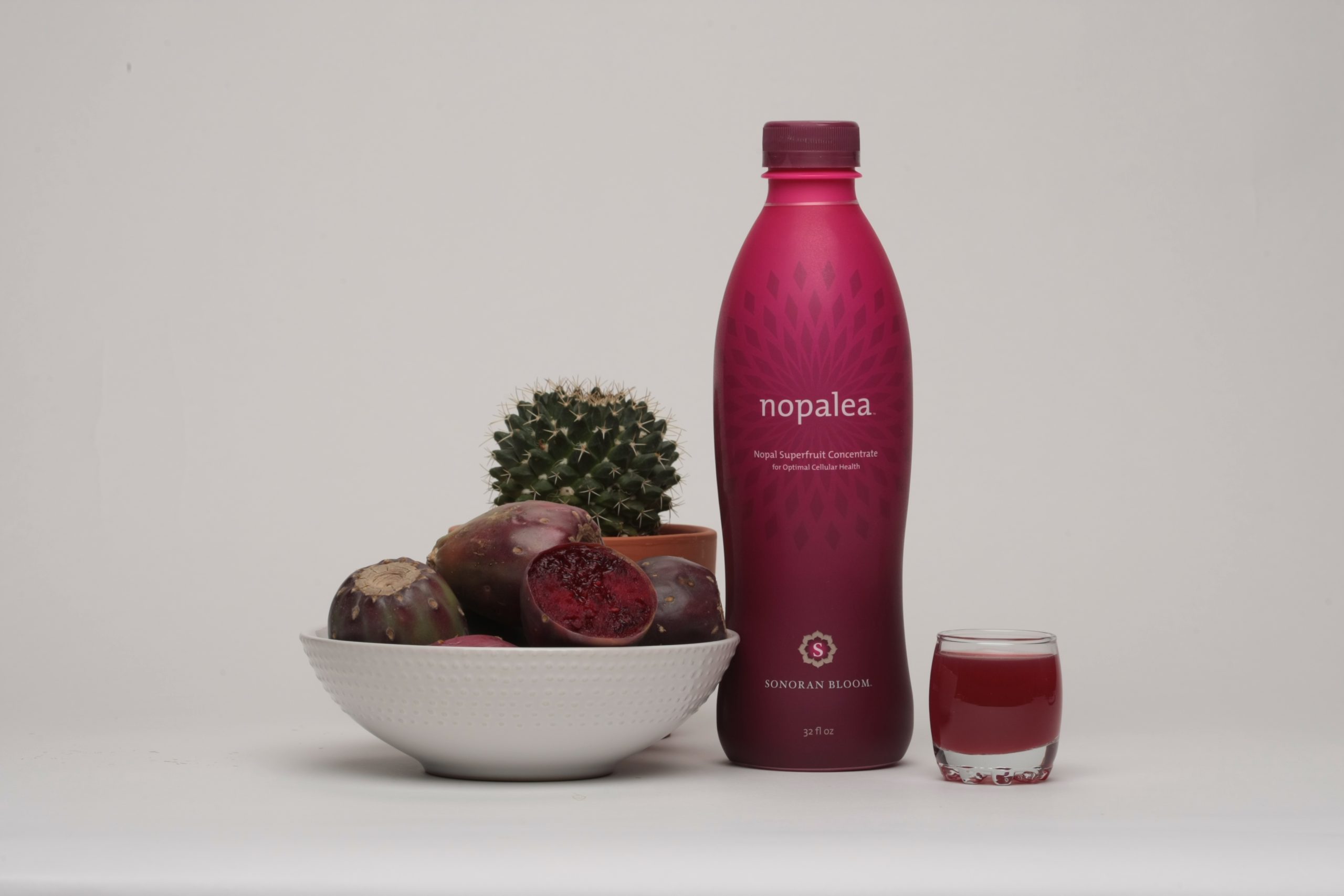
Could This Be the Closest Thing to a Wonder Drug?
What could be more beneficial to your health than any medication? According to a publication by Harvard Medical School, walking is considered to be the most helpful thing you can do to sustain your life-giving force of wellness. They even quote Dr. Frieden saying, “The closest thing I know to a wonder drug is walking.” Because of our medical system and evidence-based practices, we have been influenced to believe that accepting disease and managing disease is our best way to a better quality of life. That is a choice, but it is not the best choice if it ignores nutrients and nurturing in supporting your body systems and organs designed to keep you well.
Your body is amazing, wonderful and beautifully designed. I like to think of it as a Ferrari with a distinctive style of elegance, power, and speed. And yes, a costly automobile. If you were fortunate enough to own one, would the tire pressure matter? What kind of fuel would you burn? Would oil quality and coolant levels have anything to do with performance? Or if the tires were low on air pressure, you would just stop and enjoy sitting in the beautiful Ferrari! You get the point. Your choice of nutrition and nurturing matters to your health and wellness. Harvard Medical School is ranked number 1 in research, and they continually come forward with research that shows lifestyle choices matter most to your health!
You will benefit in so many ways when you make choices to manage your inflammation. The new Nopalea random double-blind placebo-controlled clinical study shows that after taking 3 ounces per day of Nopalea for 60 days, participants showed improvement in joint mobility, neck and back range of motion, and flexibility. Another noticeable result in the study showed that participants experienced less pain and greater quality of life.
Take note from Harvard Medical School research, if you can move better and will include 30 minutes of walking per day five days a week, it is one of the most important things for your long term health. And when you have greater mobility and range of motion in your joints, neck, and back, you will want to be more active doing the things you love to do!
In my home gym, I have two motivators, “Just do it” by Nike, and my own quote, “Just move it!”
I hope you will take the time to browse the quality products offered by TriVita to help you “just move it” and enjoy the highest quality of life. That is our pursuit and hope for our own lives as well as yours.
Physical activity is also one of the Ten Wellness Essentials I write about in my book, The Ten Habits of Wellness The three Rs (Reward, Routine, and Reminders) will help you develop lifestyle habits that promote wellness. By getting a copy and having it as a reminder, will help you develop those endearing and enjoyable wellness habits.
-
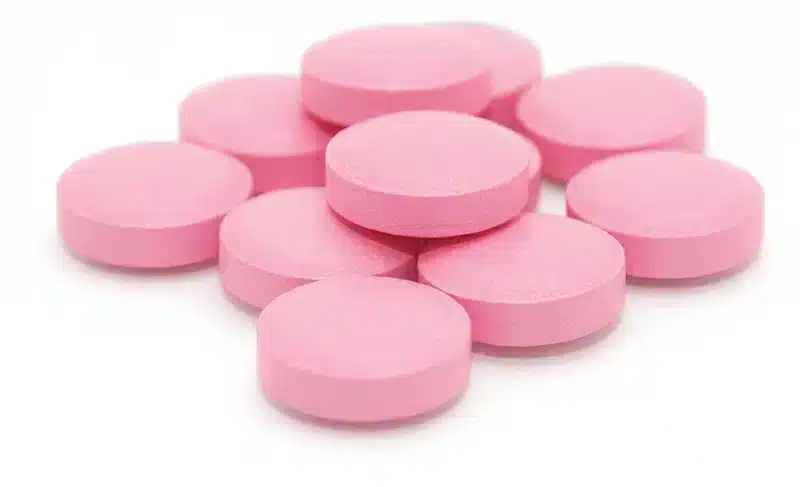
Debunking Four Myths About Vitamin B12
The vitamin B12 craze has been around for years—and for good reason. Vitamin B12 is an essential vitamin that your body requires to function properly. B12 is involved in numerous critical processes such as DNA production, metabolism, healthy nerve function and the formation of red blood cells.
While this vitamin is necessary for long-term health, there are still some major misconceptions about it. So, here are four of the most common myths about B12 and the real truth about vitamin B12.
Myth One: Only vegans and vegetarians are at risk of B12 deficiency
Anyone can be at risk of developing a vitamin deficiency. As modern diets, lifestyles and medication use change, it’s possible that anyone can develop a vitamin B12 deficiency. That being said, certain groups have an increased risk. Those groups include individuals who:
- Eat a restrictive diet. It’s always best to take a food-first approach to get the nutrients you need to thrive. However, certain dietary restrictions can make it challenging to meet your needs.
- Use certain medications. Nutrient absorption begins in the stomach where stomach acid plays a vital role in making vitamin B12 available to your body. Those taking medications to suppress gastric acid or treat heartburn may be a higher risk of developing a deficiency.
- Have undergone gastrointestinal surgeries or have GI disorders. Gastric bypass and other types of stomach surgery, as well as gastrointestinal conditions like Crohn’s disease or IBS, can put you at higher risk.
- Adults over age 50. Stomach acid production typically slows down as you age, which can prohibit your body from unlocking vitamin B12 from food and making it available to the body.
Myth Two: B12 shots are better than oral supplements

Vitamin B12 shots and now B-vitamin IVs are being advertised as the best option. While it’s true that B12 injections can deliver considerable doses directly into the bloodstream very quickly, it may not be the best solution for everyone. B12 shots are often expensive and require a visit to your doctor’s office. If you are looking for the best type of B supplement, then find the one that works best for your budget, lifestyle, and health.
Myth Three: Vitamin B12 will instantly boost energy
Vitamin B 12 has long been touted as an energy-boosting vitamin, by it’s more like a key that unlocks energy. While B-vitamins can alleviate fatigue and improve overall energy levels, don’t start popping vitamins looking for a quick fix to your energy woes. Supplementing with vitamin B12 certainly can improve energy levels, but have only been shown in individuals with low or low-normal blood levels. So if you already have optimal levels of B12, then supplementing likely won’t offer you what you’re looking for.

Myth Four: Taking too much vitamin B12 is dangerous
Vitamin B12 is a water-soluble vitamin, meaning your body secretes any excess that can’t be used through the urine. Moreover, there is no upper limit for B12, so you don’t really need to worry about getting too much through diet and supplements. The recommended amount of vitamin B12 for adults is 2.4 micrograms per day and 2.6 and 2.8 micrograms per day for expecting and nursing mothers, respectively.
References:
healthline
https://ods.od.nih.gov/ -

This One Blood Test Could Save Your Life
Inflammation is a hot topic. It’s in the news, making magazine covers and maybe your doctor has even discussed the effects of chronic inflammation with you. But this wasn’t always the case. It wasn’t until recently that scientists discovered that inflammation is at the root of many degenerative diseases, including heart disease, diabetes, obesity, Alzheimer’s and even cancer.
How to Tell If You’re Inflamed
C-reactive protein (CRP) has long been used as a marker of inflammation. High CRP levels are present in most, if not all, inflammatory states and diseases even without any other symptoms. Knowing your CRP level puts you in a powerful position. If your levels are elevated, you can take steps to lower it and reduce your risk of developing some of the chronic conditions mentioned above.
C-reactive protein is produced throughout the body, mostly by the liver, immune and fat cells. This protein is sent into your bloodstream in response to rising inflammation. CRP is most often used as a marker of general inflammation and has been used to monitor the progression of inflammatory conditions. But more recently, accumulating evidence suggests that CRP may play a more active role by causing inflammation.
The best way to gauge your level of inflammation is to visit your physician and request a CRP test. During your visit, be sure to discuss risk factors, concerns and any other screenings you need and when you need them. Regular medical check-ups can help you identify potential issues before they become serious problems.

How to Lower C-Reactive Protein
Several different factors can increase inflammation in your body, from genetics to environmental. However, your lifestyle has a direct impact on your inflammatory status and CRP levels. For starters, it’s crucial to ditch processed foods and replace them with fresh produce. Fruits and vegetables are naturally high in polyphenols and antioxidants, which may help counter the effects of oxidative stress and inflammation.
Managing your weight is another way to help decrease inflammation in your body. Overweight and obese individuals tend to have higher levels of CRP. Carrying excess weight can set the stage for inflammation and increase the risk of developing degenerative diseases such as diabetes and metabolic syndrome.
Lastly, certain dietary supplements can help curb elevated C-reactive protein levels and help support healthy inflammatory responses. In a randomized, double-blind, placebo-controlled clinical study, Nopalea was shown to lower elevated at-risk levels of C-reactive protein. In addition, it helped improve neck, back and joint mobility, flexibility and range of motion compared to the placebo group.
As you can see, even with all the breakthroughs about inflammation the standard preventative advice still holds. Eat a balanced diet, manage your weight and supplement wisely. But the first and most important step is to schedule an appointment with your doctor to discuss your potential risks, have your C-reactive protein levels tested. Then you can work with your physician to establish a lifestyle regimen that works best for you.
References:
- https://www.health.harvard.edu/newsletter_article/Inflammation_A_unifying_theory_of_disease
- https://www.ncbi.nlm.nih.gov/pubmed/15050096
- https://www.ncbi.nlm.nih.gov/pmc/articles/PMC5055983/
- https://www.ncbi.nlm.nih.gov/pubmed/14993913
- Jensen, G. Evaluation of Activity Levels, Inflammatory Markers, and Overall Wellness. 2019.
-

Episode 18: Featuring Jarir Nakouzi, M.D.
Jarir Nakouzi, M.D. is back to help you spot the differences between healthy acute inflammation and chronic inflammation.
Knowing your numbers is so important to your overall health and can help you make better choices. On this episode of Healthy You, Dr. Nakouzi discusses the differences between acute and chronic inflammation. Plus, he shares key inflammatory markers that you should have tested. Join Michael R. Ellison and Dr. Nakouzi to learn more about lowering chronic inflammation through healthy lifestyle choices.
Click Here to listen to Part 1 of this podcast.
About Jarir Nakouzi, M.D.

Jarir Nakouzi, M.D. completed his residency in the Yale University Program of Internal Medicine and has practiced biological medicine for over thirty years. As an expert in oncology, he specializes in integrative approaches in treating chronic degenerative conditions. His private practice in Connecticut takes an integrative approach to chronic disease.
-

Improving Flexibility, Mobility, and Range of Motion
Inflammation is directly associated with symptoms such as swelling, pain, heat and limited mobility. Inflammation can affect your quality of life. Reducing your inflammation can alleviate these symptoms.
The Difference Between Range of Motion, Mobility, and Flexibility
Flexibility and mobility are two popular terms that are often used interchangeably. Many people think that if you stretch enough, you’ll maintain your mobility. However, they are different, and flexibility is only part of the equation when it comes to your movement.
Flexibility is a muscle’s ability to stretch when needed. For instance, imagine a rubber band. If you pull it in opposing directions, it should stretch. The same happens with flexible muscles. It’s worth noting that flexibility often refers to muscles, but can also apply to joints, ligaments, and tendons.
Mobility, on the other hand, is the ability of your joints to move through an intended range of motion. Your shoulder, which is a ball-and-socket joint, is designed to move in many directions. With normal mobility, you can move your shoulder side-to-side, forward and backward, as well as in circles. If you can’t move it in all of these ways, there is a lack of mobility in the joint.
Range of motion is simply a measurement of your mobility. It is the amount of movement you have at each joint. The primary determiner of how well your joints move relies on the shape and structure of your bones, how and where they come together, as well as the health of the ligaments and tendons that attach to your bones. Everyone has a unique available range of motion. That being said, you can improve your range of motion through a combination of stretching and strengthening exercises.
Common Factors That Affect Mobility and Flexibility
Injuries: Slips and falls are common, especially as you age. When you experience a physical injury, inflammation kicks in right away to begin repairing the wound and setting the stage for healing. Symptoms of acute inflammation, such as swelling and pain, can limit your mobility. To further complicate this, prolonged mobility impairment can make you more susceptible to physical injury. Click here to read more about preventing and recovering after a fall or injury.
Diseases: Similar to injuries, certain illnesses can prohibit you from moving freely and performing everyday activities. On the surface, if you don’t feel well, lack energy, or have other symptoms associated with a disease or illness, your mobility can be impaired. However, it’s important to note that chronic inflammation plays a part in many conditions. Inflammation brings with it symptoms of its own, such as aches and pains. These sensations can make movement uncomfortable and difficult.
Excess Fat Mass or Skin: Extra fat mass can prevent joints from moving through their full range of motion. This is possible by the fat or muscle physically limiting or blocking its movement. For example, a large amount of abdominal fat can limit the hips range of motion and prevent you from pulling your knee into your ribs.

Restore Your Body’s Vitality and Get Moving!
Don’t let stiff joints and limited mobility hold you back. Your lifestyle is a major contributing factor to your overall health as well as your mobility, flexibility, and range of motion. Here are a few things to keep in mind if you want to improve your movement.
- Reduce Inflammation
As explained above, inflammation can limit your ability to move with ease and comfort. There are many reasons your body could be inflamed, so it’s important to focus on your lifestyle as a whole
- Stretch Before and After You Exercise
Before you exercise or are going to be physically active, it’s important to perform dynamic stretches, such as arm circles or pulling your knees into your chest. These types of stretches help warm up your muscles and prevent strains or other injuries during exercise. Afterward, when your muscles are already warm, static stretches can safely be performed. Static stretches are done by holding a stretch for 15 seconds or longer. This type of stretching can significantly improve your flexibility and range of motion.
- Focus on Strength
What is mobility without strength? Muscle mass naturally decreases with age, but strength training can help. Strength training will not only help you improve your overall mobility, and it has other great benefits too
- Listen to Your Body
This might be the most important takeaway. Pushing yourself too far, over-exercising and not allowing enough time for recovery are all great ways to guarantee an injury. If you’re new to exercise or have issues with mobility, talk to a personal trainer or physical therapist first and start slow. Jumping into activity or forcing yourself to touch your toes will only set you back.
- Reduce Inflammation